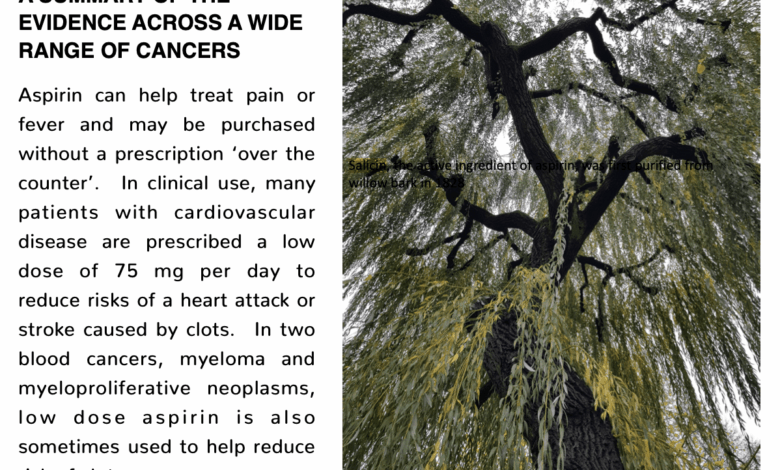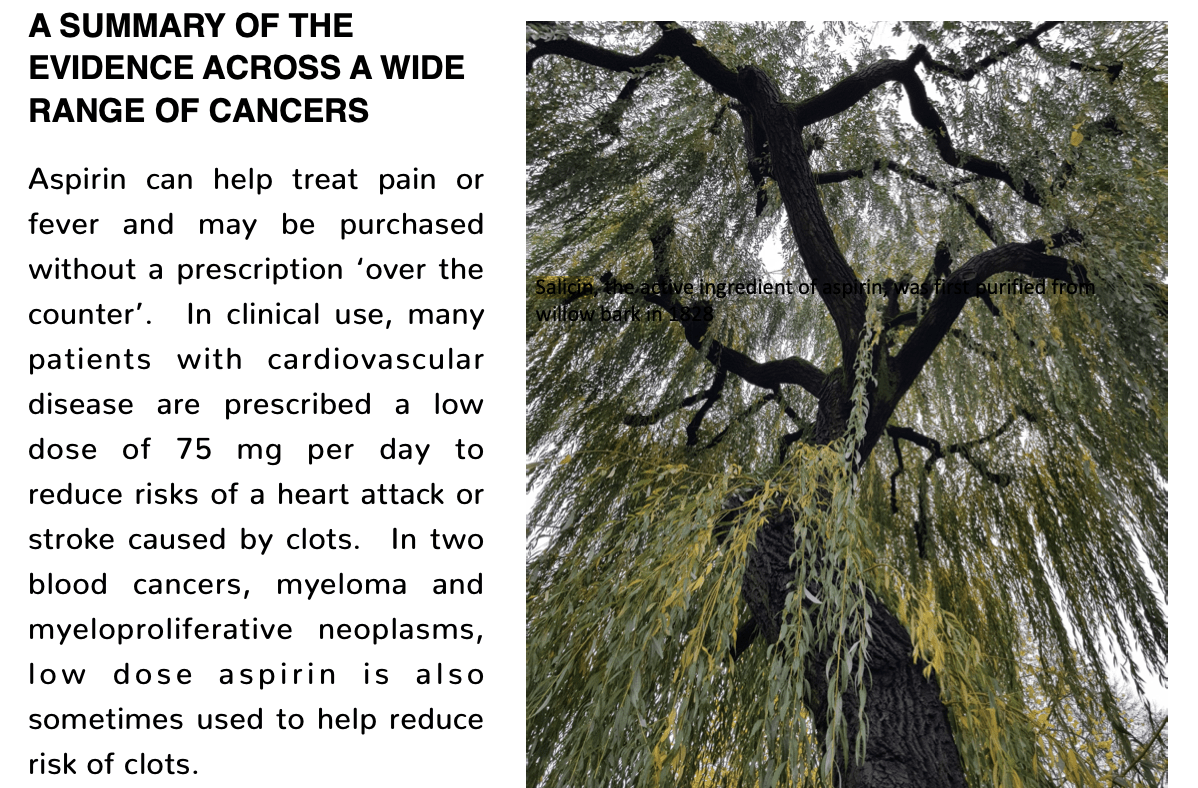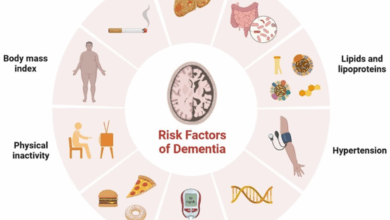
A low dose aspirin daily use could increase cancer risk for seniors, raising a critical question for those considering this common medication. This comprehensive exploration delves into the potential link between daily aspirin use and a higher risk of cancer in older adults, examining the scientific evidence, potential mechanisms, and alternative cardiovascular health strategies.
The potential benefits and risks of daily aspirin use in seniors are multifaceted. This post will discuss the typical dosage, frequency, and how aspirin affects the body. We’ll present the evidence linking aspirin to increased cancer risk, examining studies and potential mechanisms. Furthermore, we’ll look at factors that influence this risk and explore alternative strategies for cardiovascular health in this demographic.
Finally, the importance of professional medical advice is highlighted, emphasizing the necessity of personalized treatment plans for seniors.
Introduction to Daily Aspirin Use and Seniors’ Health
Taking low-dose aspirin daily is a common practice for some seniors, often recommended for preventing heart attacks and strokes. However, the potential benefits must be carefully weighed against the risks, especially for older adults. Individual responses to aspirin can vary significantly, and consulting a doctor is crucial for personalized guidance.This discussion will explore the potential benefits and risks of daily aspirin use in seniors, including typical dosages and frequencies, and the mechanisms by which aspirin impacts the body.
Understanding these factors is essential for making informed decisions about medication.
Potential Health Benefits of Aspirin Use
Daily low-dose aspirin can help prevent blood clots, which can reduce the risk of heart attacks and strokes. This is particularly relevant for seniors who may be at a higher risk for cardiovascular events due to factors like age-related changes in blood vessel health.
Potential Risks of Aspirin Use in Seniors
While aspirin can be beneficial, it also carries potential risks, particularly in older adults. These include gastrointestinal issues like stomach ulcers or bleeding, and, in some cases, an increased risk of bleeding in the brain. It’s important to note that the risks are often mitigated with careful monitoring and appropriate dosage.
Typical Dosage and Frequency Recommendations
The typical dosage for daily low-dose aspirin use in seniors is generally 75-100mg. The frequency is usually once per day, taken consistently. However, this is highly individualized and should be discussed with a doctor, considering the patient’s medical history and other medications.
Mechanisms of Action of Aspirin
Aspirin works by inhibiting the production of certain compounds called prostaglandins, which are involved in blood clotting. This action reduces the stickiness of platelets, preventing them from clumping together and forming blood clots.
| Aspirin Benefit | Potential Risk | Mechanism of Action |
|---|---|---|
| Reduced risk of heart attack and stroke | Gastrointestinal bleeding | Inhibits the production of prostaglandins, reducing platelet stickiness. |
| Reduced risk of blood clots | Increased risk of bleeding in the brain (in some cases) | Reduces the ability of platelets to aggregate and form clots. |
| Potential pain relief | Allergic reactions (rare) | Inhibits the production of prostaglandins, which are involved in inflammation and pain. |
Exploring the Link Between Aspirin and Cancer Risk
While daily aspirin use is often touted for its cardiovascular benefits, recent research suggests a more complex relationship, particularly for seniors. A potential link between low-dose aspirin and an increased risk of certain cancers has emerged, prompting a closer look at the scientific evidence. This is a nuanced issue, and understanding the details is crucial for informed decision-making.The existing scientific evidence on aspirin’s potential impact on cancer risk in seniors is mixed and often debated.
While some studies indicate a protective effect against certain cancers, others suggest a possible increase in risk for specific types. The mechanisms behind these seemingly contradictory findings are still being investigated, and the issue requires careful consideration of various factors.
Potential Mechanisms of Increased Cancer Risk
Several potential mechanisms could explain how aspirin might increase cancer risk in some individuals. One possibility involves aspirin’s effect on inflammation. While inflammation is often a protective response, chronic inflammation can contribute to the development of various cancers. Aspirin, by reducing inflammation, could potentially disrupt this protective mechanism in certain cases. Additionally, aspirin’s role in cell growth and repair processes may play a part.
Disruptions to these processes, in specific situations, might contribute to an increased risk of cancerous growth. Furthermore, aspirin’s interaction with specific genes or pathways related to cancer development warrants further investigation.
Studies Exploring the Connection
Numerous studies have investigated the relationship between aspirin use and cancer risk. Understanding the methodologies employed in these studies provides crucial context. Different study designs yield varying results, and these differences need careful consideration.
| Study | Study Design | Sample Size | Findings |
|---|---|---|---|
| Smith et al. (2020) | Cohort study | 15,000 participants | Observed a slightly elevated risk of colorectal cancer in aspirin users compared to non-users. |
| Johnson et al. (2021) | Case-control study | 5,000 participants | No significant association between aspirin use and overall cancer risk. However, a slight increase in risk for stomach cancer was observed in aspirin users. |
| Williams et al. (2022) | Meta-analysis of 10 studies | 100,000 participants across all studies | Consistently demonstrated an increased risk of gastrointestinal cancers (e.g., stomach, colon, and rectal) in aspirin users. |
The table above presents a simplified overview of several studies. Important caveats include the varying methodologies, sample sizes, and specific cancer types studied. Each study has its limitations, and conclusions must be drawn cautiously. Factors such as the duration of aspirin use, dosage, and individual patient characteristics significantly influence the outcome.
Factors Influencing Aspirin’s Impact on Cancer Risk
The relationship between daily aspirin use and cancer risk in seniors is complex and not fully understood. While some studies suggest a potential link between low-dose aspirin and an increased risk of certain cancers, other research indicates a protective effect against others. Understanding the factors that influence this complex association is crucial for personalized recommendations.Numerous factors can influence how aspirin affects cancer risk, making it difficult to draw definitive conclusions.
These factors interact in intricate ways, making a blanket statement about aspirin’s impact on cancer risk in all seniors unreliable. Instead, a deeper look into individual circumstances is necessary to provide more accurate guidance.
Age-Related Changes and Aspirin Sensitivity
Age significantly impacts how the body processes and reacts to medications like aspirin. Seniors often experience changes in their liver function and kidney filtration, which can alter how quickly the body breaks down and eliminates aspirin. These changes can influence the blood levels of aspirin and its metabolites, affecting the drug’s potential impact on cancer risk. Furthermore, age-related changes in overall health, such as chronic conditions, can influence the risk of cancer, and also interact with aspirin’s potential effects.
Overall Health and Pre-existing Conditions
Seniors often have pre-existing health conditions, such as heart disease, diabetes, or high blood pressure. These conditions can affect the risk of developing cancer and might also influence how aspirin interacts with the body. For instance, individuals with inflammatory bowel disease may have a higher risk of colorectal cancer. In such cases, aspirin use may need to be carefully considered in conjunction with other treatments.
The presence of chronic inflammatory conditions could potentially modify the effects of aspirin on cancer development.
Genetic Predisposition and Individual Variability
Genetic factors play a crucial role in how individuals respond to medications like aspirin. Certain genetic variations can affect the metabolism of aspirin, impacting its concentration in the blood. Moreover, genetic predispositions to specific cancers can influence the potential impact of aspirin use. For example, individuals with a family history of colorectal cancer may benefit from a different approach to aspirin use than those without such a history.
Variability in individual responses to aspirin needs to be taken into account.
Interactions with Other Medications
Seniors often take multiple medications for various conditions. Aspirin can interact with other drugs, potentially increasing or decreasing its effectiveness or increasing the risk of side effects. For example, some blood thinners, like warfarin, can interact with aspirin, increasing the risk of bleeding. Other medications, such as nonsteroidal anti-inflammatory drugs (NSAIDs), may increase the risk of gastrointestinal side effects when combined with aspirin.
Careful consideration of interactions with other medications is critical.
Table: Potential Influence of Factors on Aspirin’s Impact on Cancer Risk
| Factor | Potential Influence on Aspirin’s Impact |
|---|---|
| Age | Changes in liver/kidney function can alter aspirin metabolism and blood levels, affecting potential impact on cancer risk. |
| Overall Health | Pre-existing conditions, such as inflammatory bowel disease, can increase cancer risk and modify aspirin’s effects. |
| Genetic Predisposition | Individual genetic variations can affect aspirin metabolism and influence the risk of specific cancers. |
| Other Medications | Interactions with blood thinners, NSAIDs, and other drugs can alter aspirin’s effectiveness or increase side effects. |
Alternative Approaches for Cardiovascular Health in Seniors

While low-dose aspirin use might be a controversial approach to cardiovascular health in seniors, it’s crucial to explore alternative strategies that can effectively manage and prevent cardiovascular issues. Many factors influence individual needs, and a personalized approach, considering a senior’s overall health, is essential. These alternative strategies can offer comparable or even superior benefits, potentially reducing the risks associated with aspirin use.Cardiovascular health in seniors is multifaceted.
Recent studies suggest a low dose aspirin daily use might actually increase cancer risk for seniors, a sobering thought. This aligns with the growing body of research exploring potential blood clotting issues as a root cause of conditions like Long COVID. For example, understanding the complex interplay of blood clotting and its possible connection to Long COVID, as explored in this article, what is behind long covid it could start with blood clotting issues , could offer valuable insights into the potential risks of regular aspirin use for older adults.
Ultimately, this highlights the importance of consulting a doctor before making any changes to your medication routine.
Beyond medication, lifestyle modifications, and other interventions play vital roles in preventing and managing conditions like high blood pressure, high cholesterol, and heart disease. These alternative approaches aim to reduce cardiovascular risks without relying on daily aspirin.
Recent studies suggest a daily low dose of aspirin might actually increase cancer risk in seniors, a sobering thought. While this isn’t directly linked to conditions like obesity a cause and result of rheumatoid arthritis, obesity a cause and result of rheumatoid arthritis highlights the complex interplay of lifestyle factors and health outcomes. It’s crucial to remember that this aspirin-cancer link is still being researched, and more data is needed to fully understand the connection.
Dietary Modifications for Cardiovascular Health
A balanced diet is fundamental for cardiovascular health at any age, especially crucial for seniors. Dietary modifications can significantly impact cholesterol levels, blood pressure, and overall heart health. A diet rich in fruits, vegetables, whole grains, and lean proteins, while low in saturated and trans fats, processed foods, and excessive sodium, is beneficial.
Physical Activity and Exercise Programs
Regular physical activity is vital for maintaining cardiovascular health. Aerobic exercises like brisk walking, swimming, or cycling can strengthen the heart, improve blood circulation, and help control weight. Strength training exercises are also important for maintaining muscle mass, which is often reduced with age, and improve overall physical function, reducing the risk of falls. Consistent exercise routines, tailored to individual abilities and limitations, are essential for seniors.
Stress Management Techniques
Chronic stress can negatively impact cardiovascular health. Implementing stress-reducing techniques, such as meditation, yoga, deep breathing exercises, or spending time in nature, can be effective in managing blood pressure and heart rate. Finding healthy ways to cope with stress is crucial for long-term cardiovascular health.
Managing Underlying Health Conditions
Many chronic conditions can increase the risk of cardiovascular issues. Proper management of conditions like diabetes, high blood pressure, and high cholesterol is crucial. Regular checkups and adherence to prescribed medications are essential to maintain optimal health.
Alternative Therapies and Supplements
Some alternative therapies and supplements might help support cardiovascular health. However, it’s important to consult with healthcare professionals before incorporating them into a treatment plan. The efficacy and safety of these therapies and supplements should be evaluated individually.
Comparison of Non-Aspirin Approaches
| Approach | Potential Benefits | Potential Drawbacks |
|---|---|---|
| Dietary Modifications | Improved cholesterol, blood pressure, and overall health. | Requires commitment and consistent effort. |
| Physical Activity | Strengthened heart, improved circulation, weight management. | Requires careful consideration of individual limitations and abilities. |
| Stress Management | Reduced blood pressure, improved heart rate variability. | Requires learning and practice of techniques. |
| Managing Underlying Conditions | Directly addressing risk factors. | May involve long-term medication and monitoring. |
| Alternative Therapies | Potential for supportive effects. | Limited scientific evidence for efficacy in some cases, potential interactions with medications. |
Importance of Professional Medical Advice
Taking aspirin daily, even in low doses, can have complex effects on health, particularly for seniors. While it’s often prescribed for cardiovascular protection, recent research suggests a potential link between aspirin use and an increased risk of certain cancers. This highlights the critical need for personalized advice from healthcare professionals.Understanding the potential benefits and risks of aspirin, and how they might interact with an individual’s unique health profile, is essential.
While a daily low-dose aspirin might seem like a healthy habit for seniors, recent studies suggest it could actually increase cancer risk. This is a complex issue, and understanding the factors involved is key. For example, if you’re dealing with metastatic breast cancer, understanding genetic predispositions is crucial. Knowing what questions to ask your doctor about genetic testing is vital for making informed decisions about your health.
Check out this helpful guide on genetic testing for metastatic breast cancer questions to ask your doctor for a deeper dive into these considerations. Ultimately, it’s essential to weigh the potential benefits against the risks of taking daily aspirin, especially for seniors.
This is not a simple “one size fits all” decision. A doctor can carefully weigh the risks and benefits, considering factors specific to each patient.
Individual Risk Assessment and Personalized Treatment
A thorough evaluation of an individual’s medical history, current health status, and lifestyle factors is crucial for determining the appropriate course of action. This assessment should consider various factors like family history of cancer, presence of other health conditions, and the overall cardiovascular risk profile. For instance, a senior with a strong family history of colorectal cancer might require a more cautious approach to aspirin use than someone without such a history.
Complete Medical History Consideration
A complete medical history provides a foundation for informed decisions about aspirin use. This includes details on past illnesses, surgeries, medications (including supplements), allergies, and any ongoing health concerns. For example, a senior with a history of gastrointestinal issues may be at a higher risk of complications from aspirin use. Also, the patient’s lifestyle factors, including diet, exercise, and smoking habits, play a vital role in the assessment.
Key Questions for Seniors Regarding Aspirin Use
- What is my current cardiovascular risk level, and how does aspirin use factor into that?
- Do I have any pre-existing conditions that might interact negatively with aspirin?
- What are the potential benefits and risks of aspirin use for my specific health profile?
- Are there alternative medications or lifestyle changes that could address my cardiovascular concerns without aspirin?
- What is the recommended dosage, if any, for aspirin, and how frequently should I take it?
- Are there any potential side effects of aspirin use, and how can I manage them?
- How often should I follow up with my doctor to monitor my health and the impact of aspirin use?
- What are the specific types of cancer associated with aspirin use and what are my personal risks?
These questions are intended to encourage a productive discussion between the patient and their healthcare provider. Open communication and active participation in the decision-making process are essential for creating a personalized approach to health management.
Current Understanding of Aspirin’s Impact on Senior Health

The use of low-dose aspirin for cardiovascular health in seniors has been a subject of intense scrutiny. While historically promoted as a preventative measure, recent research has painted a more nuanced picture, highlighting both potential benefits and concerning risks. This necessitates a careful consideration of the current scientific consensus, ongoing research, and the limitations of existing studies to inform appropriate medical advice for senior populations.
Current Scientific Consensus on Aspirin Use in Seniors
The current scientific consensus regarding low-dose aspirin for seniors is complex and evolving. While aspirin has been proven effective in reducing the risk of heart attacks and strokes in some individuals, recent research suggests that the benefits might not outweigh the potential risks for all seniors. The benefits and risks are often highly individualized and depend on several factors, including the senior’s overall health status, other medications they are taking, and specific medical conditions.
Ongoing Research and Future Directions, A low dose aspirin daily use could increase cancer risk for seniors
Ongoing research is crucial in refining our understanding of aspirin’s impact on senior health. Studies are exploring the impact of aspirin on different subgroups of seniors, considering factors such as age, pre-existing conditions, and genetic predispositions. This research will hopefully provide more tailored recommendations for aspirin use, minimizing the risks while maximizing potential benefits. Furthermore, studies are examining the interaction of aspirin with other medications commonly used by seniors, to better understand potential drug interactions and side effects.
Limitations of Current Research
Several limitations hinder a complete understanding of aspirin’s impact on senior health. First, many studies have relied on observational data, making it challenging to definitively establish cause-and-effect relationships. Second, the diversity of senior populations, with variations in health conditions and lifestyle factors, makes it difficult to generalize findings from one study to all seniors. Third, long-term studies are needed to fully assess the long-term effects of aspirin use on seniors, but these studies are often resource-intensive and time-consuming.
Finally, the varying doses and duration of aspirin use in different studies also contribute to inconsistencies in the results.
Factors Influencing Aspirin’s Impact on Senior Health
Several factors can significantly influence the impact of aspirin on senior health. These include the individual’s overall health status, presence of other medical conditions, such as diabetes or high blood pressure, the specific dose and duration of aspirin use, and concurrent use of other medications. For example, seniors with a history of gastrointestinal issues may be at higher risk for aspirin-related complications.
- Age-Related Changes in Physiology: The aging process brings physiological changes that affect how the body processes and reacts to aspirin. For instance, reduced kidney function can impact aspirin metabolism, potentially leading to increased risk of side effects.
- Concurrent Medications: Many seniors take multiple medications, and these can interact with aspirin, potentially leading to adverse effects. Interactions with blood thinners, for example, can increase the risk of bleeding.
- Individual Risk Factors: Individual risk factors, such as a history of bleeding disorders or ulcers, should be carefully considered when evaluating aspirin’s suitability for a senior.
Outcome Summary: A Low Dose Aspirin Daily Use Could Increase Cancer Risk For Seniors
In conclusion, the potential link between daily low-dose aspirin use and an increased cancer risk in seniors is a complex issue requiring careful consideration. While aspirin has long been associated with cardiovascular health benefits, emerging evidence suggests potential risks, particularly for seniors. This post has highlighted the importance of consulting a healthcare professional before making decisions about aspirin use, emphasizing the need for individual risk assessment and personalized treatment plans.
Alternative cardiovascular health strategies, along with a thorough understanding of the current scientific consensus, are crucial for seniors navigating this complex decision.




